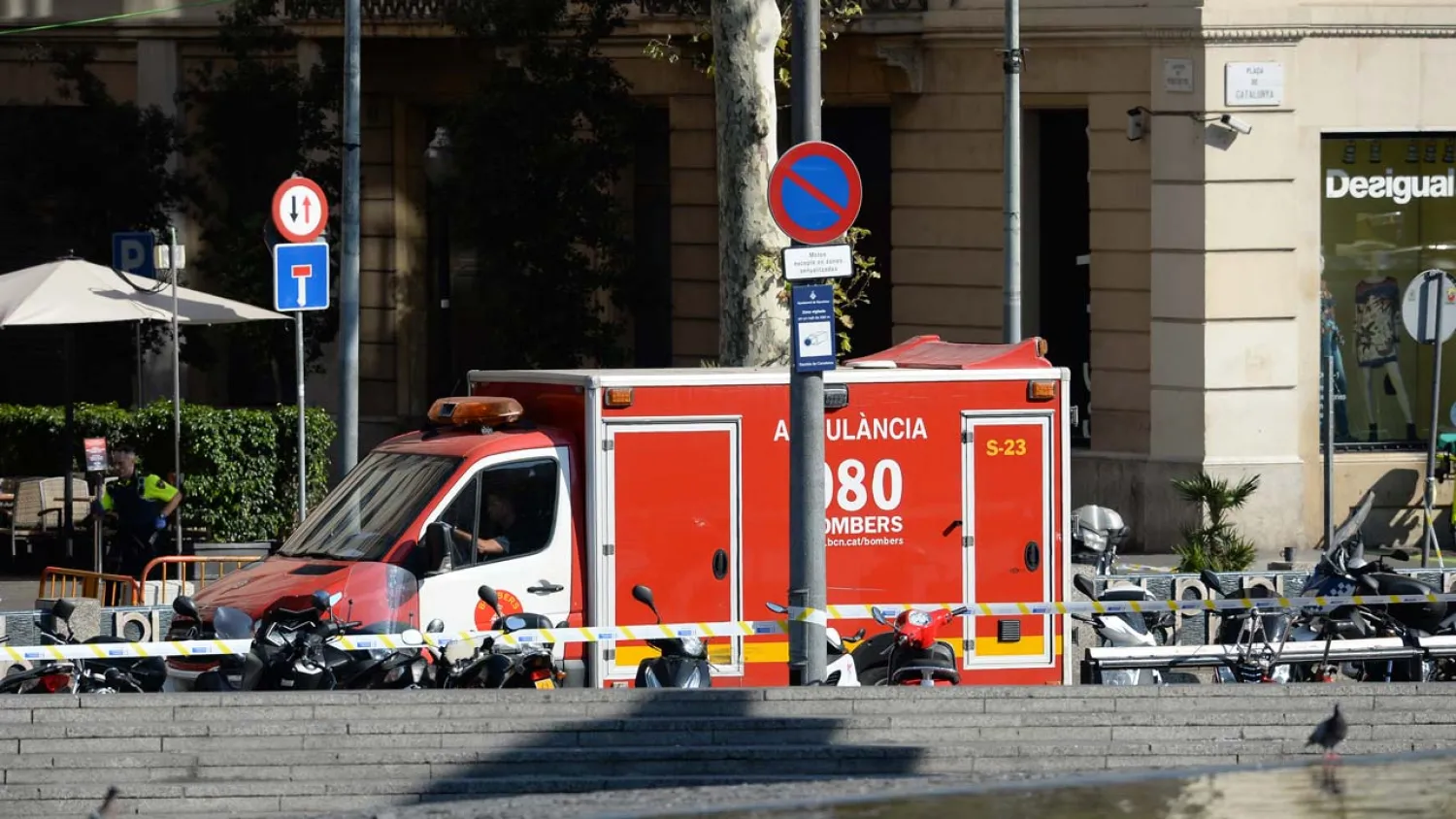Police on Friday hunted for the driver who rammed a van into pedestrians on an avenue crowded with tourists in Barcelona, leaving 13 people dead, just hours before a second deadly assault in the coastal resort of Cambrils.
Police said they killed five "suspected terrorists" during the night in Cambrils, 120 kilometers south of Barcelona where by-standers and police were targeted in a second car attack.
Three others were arrested in other parts of the Catalonia region where both cities are located, but the driver responsible for the carnage in Barcelona remained at large, authorities warned.
In the Barcelona incident, claimed by ISIS, a white van sped down a wide avenue packed full of tourists on Thursday afternoon, knocking people down and killing 14 in a scene of chaos and horror. More than 100 were also injured.
The driver left the vehicle and fled on foot.
Some eight hours later in Cambrils, an Audi A3 car rammed into pedestrians, injuring six civilians -- one of them critical -- and a police officer, authorities said. But a woman succumbed to her injuries on Friday, raising the death toll of the attacks to 14.
Gunfire ensued during which police killed the five attackers. Some were wearing what appeared to be explosive belts, although Catalan interior minister Joaquim Forn later said they were fake.
The ISIS propaganda agency Amaq claimed the Barcelona attack was carried out by "soldiers" from the terrorist group.
Police announced the arrest of three suspects, including a Spaniard and a Moroccan.
Carles Puigdemont, president of the region of Catalonia where both cities are located, warned the suspect still on the run was potentially dangerous, saying "these types of people have already demonstrated they have the will to harm whatever happens."
There were at least 18 nationalities among the Barcelona victims who came from countries as varied as France, Venezuela, Australia, Ireland, Peru, Algeria and China, according to Spain's civil protection agency.
Las Ramblas is one of Barcelona's busiest streets, lined with shops and restaurants and normally packed with tourists and street performers until well into the night.
Spain, the world's third most popular tourism destination, had until now been spared the kind of extremist violence that has rocked nearby France, Belgium and Germany.
Police said Thursday that one of the arrested suspects in the Barcelona attack was a Spaniard born in Melilla, a Spanish territory in North Africa, and the other a Moroccan named as Driss Oukabir.
In a further twist, the Spaniard was arrested in Alcanar, about 200 kilometers south of Barcelona, the scene of an explosion in a house late Wednesday that left one person dead and seven wounded and is believed to be linked to Thursday's assault.
On Friday, thousands of people including Spain's king and prime minister have held a minute of silence for the victims of attacks in Barcelona and a nearby seaside resort.
King Felipe VI and Prime Minister Mariano Rajoy, along with Puigdemont, stood in front of the crowd in Placa de Cataluyna during the remembrance. The participants then broke into applause before the crowd chanted repeatedly: "I am not afraid! I am not afraid!"
The minute of silence was held near where the driver of the van started the attack.









